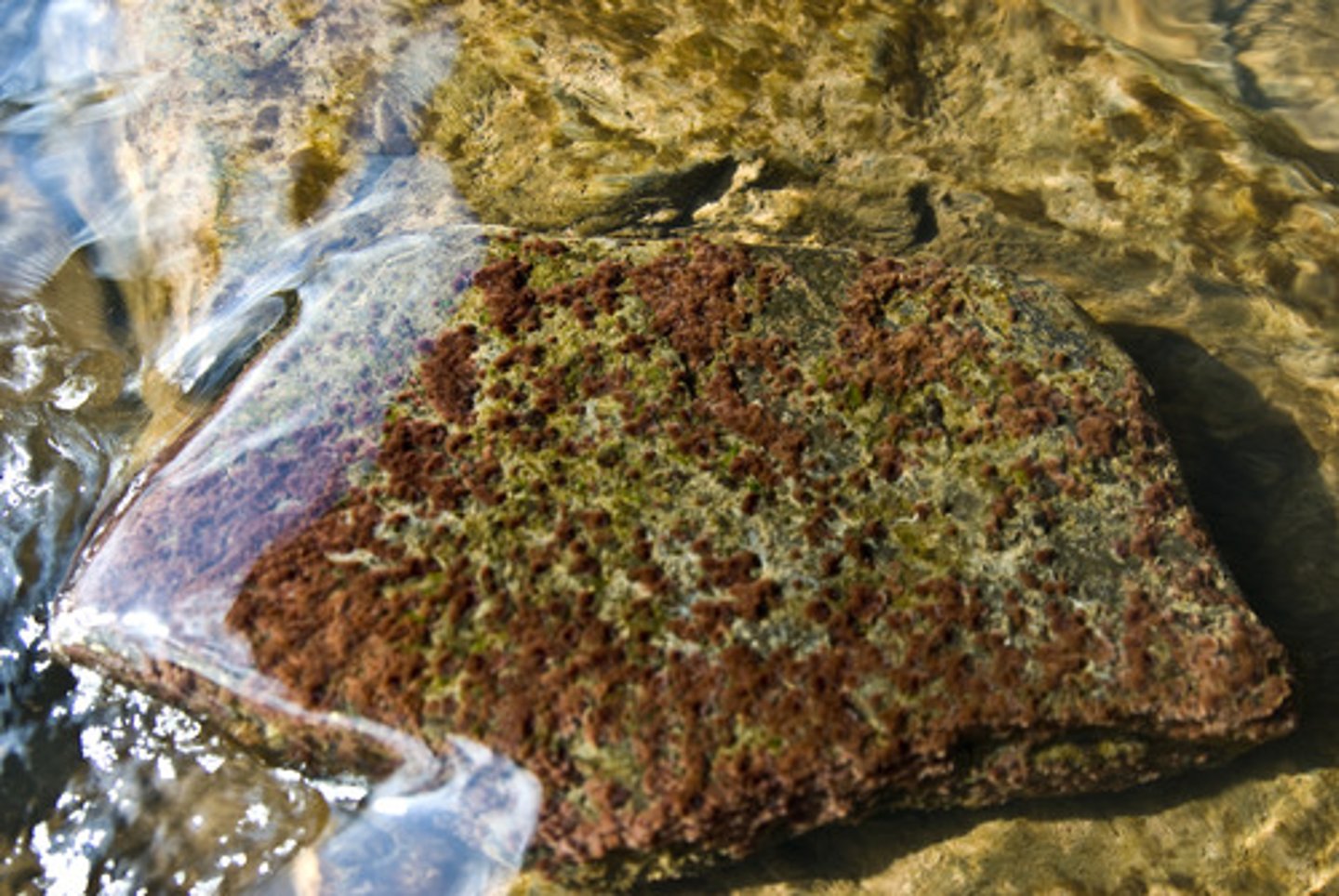Rnr Gulf of Mexico 🇲🇽 🦅
1/51
There's no tags or description
Looks like no tags are added yet.
Name | Mastery | Learn | Test | Matching | Spaced |
|---|
No study sessions yet.
52 Terms
Bycatch
. has been a particularly important issue in the Gulf of Mexico shrimp fishery
. benthic trawling significantly contributes to this
. 30% of fishing is these unintended catch of other aquatic species
Usually catching sensitive creatures such as:
. juvenile red snappers
. endangered sea turtles
. several species of dolphins
Bycatch Reduction Devices
a modification to fishing gear, like a shrimp trawl, designed to allow unwanted fish (bycatch) to escape while retaining the targeted catch (like shrimp)
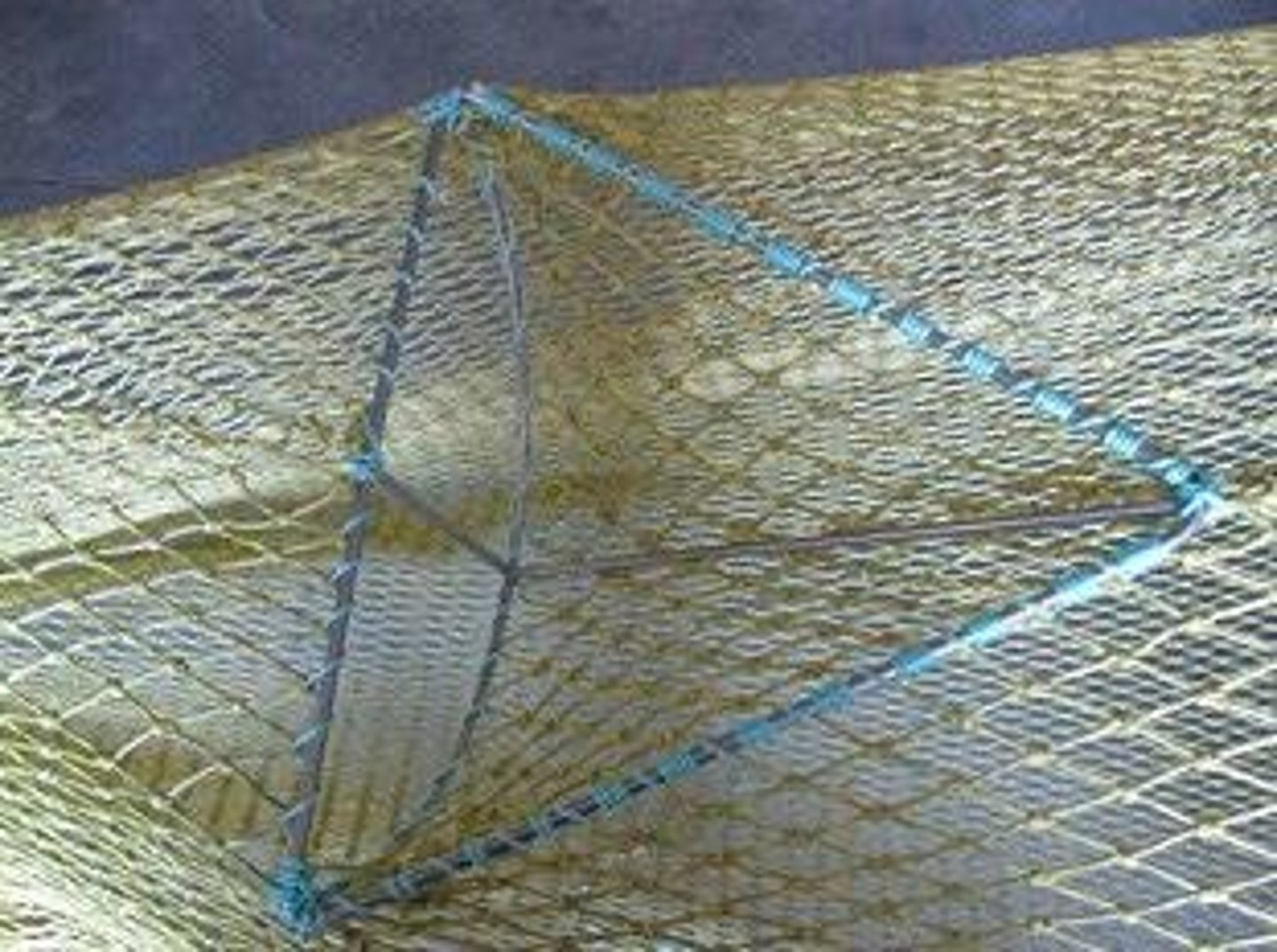
Chesapeake Bay problems
. chemical contamination
. eutrophication
. sediment trapping
. substrate stabilization
. collapse of historically important fisheries
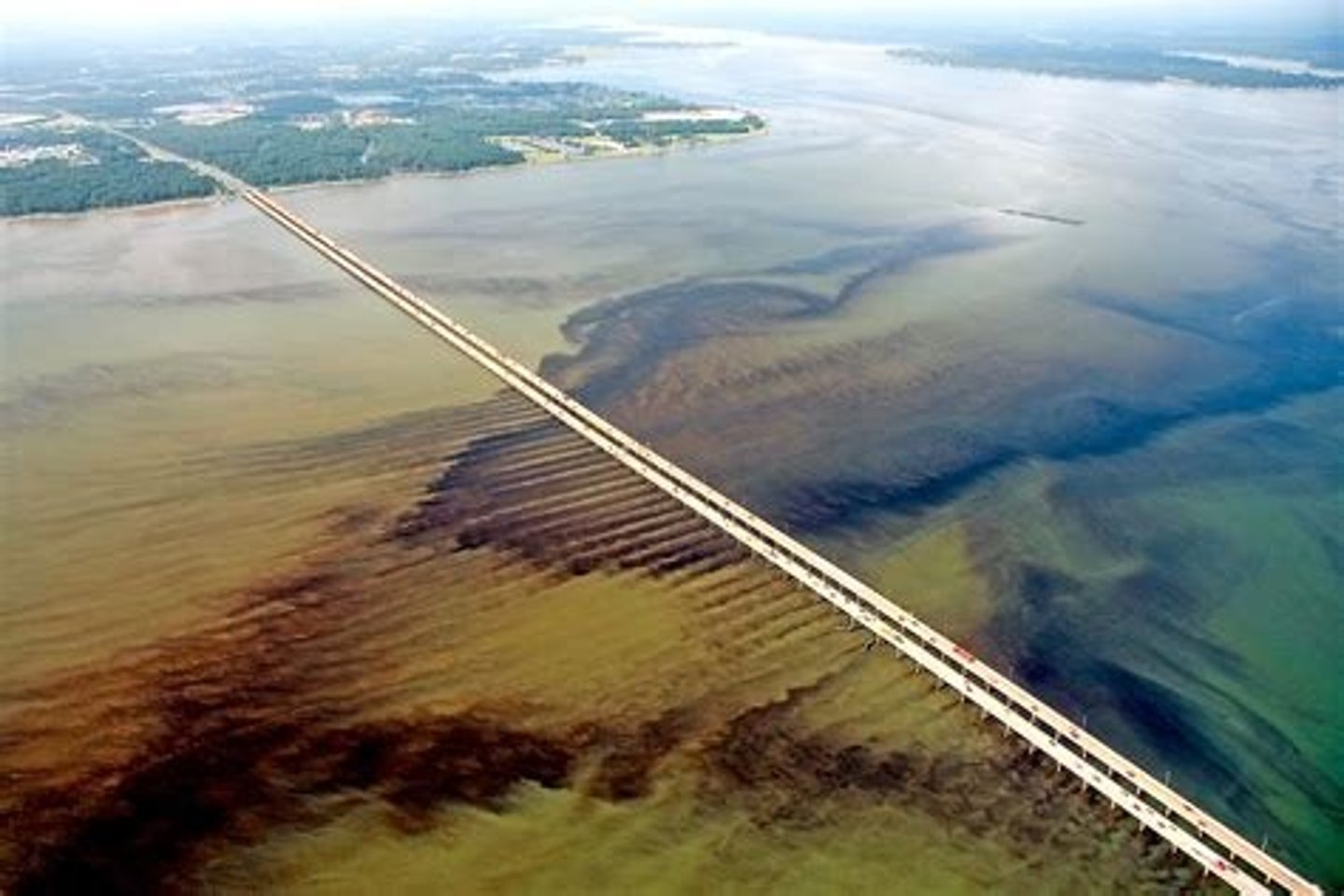
Otter Trawling
bag-shaped net dragged along the ocean floor

Benthic Trawling
a fishing method that drags a net along the seabed; wooden boards at the front of the net keep the net open and stir up the seabed, causing damage
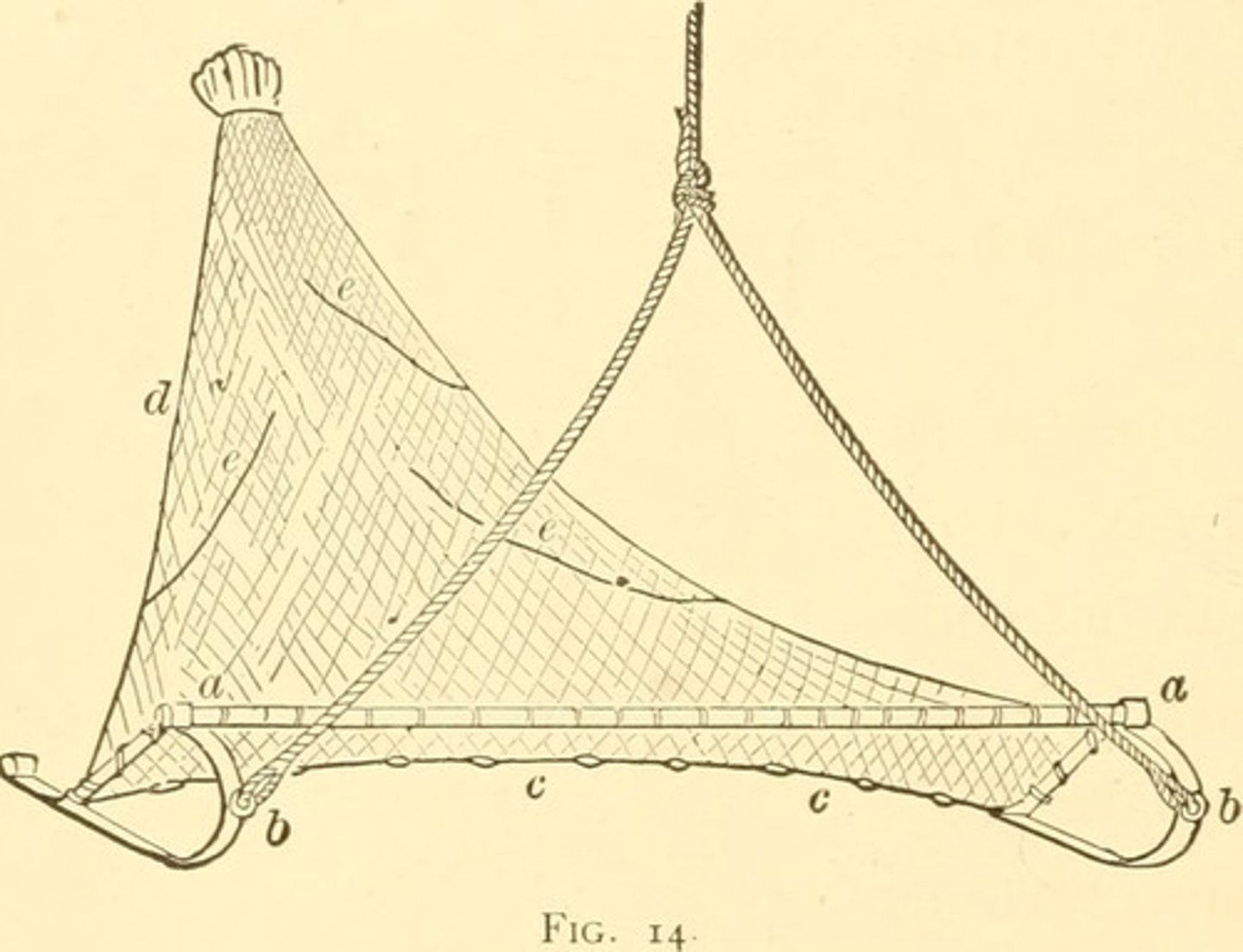
Coccolithophores
microscopic algae with calcium carbonate shells, form the base of many marine food webs
Eaten by:
. smaller fish
. zooplankton
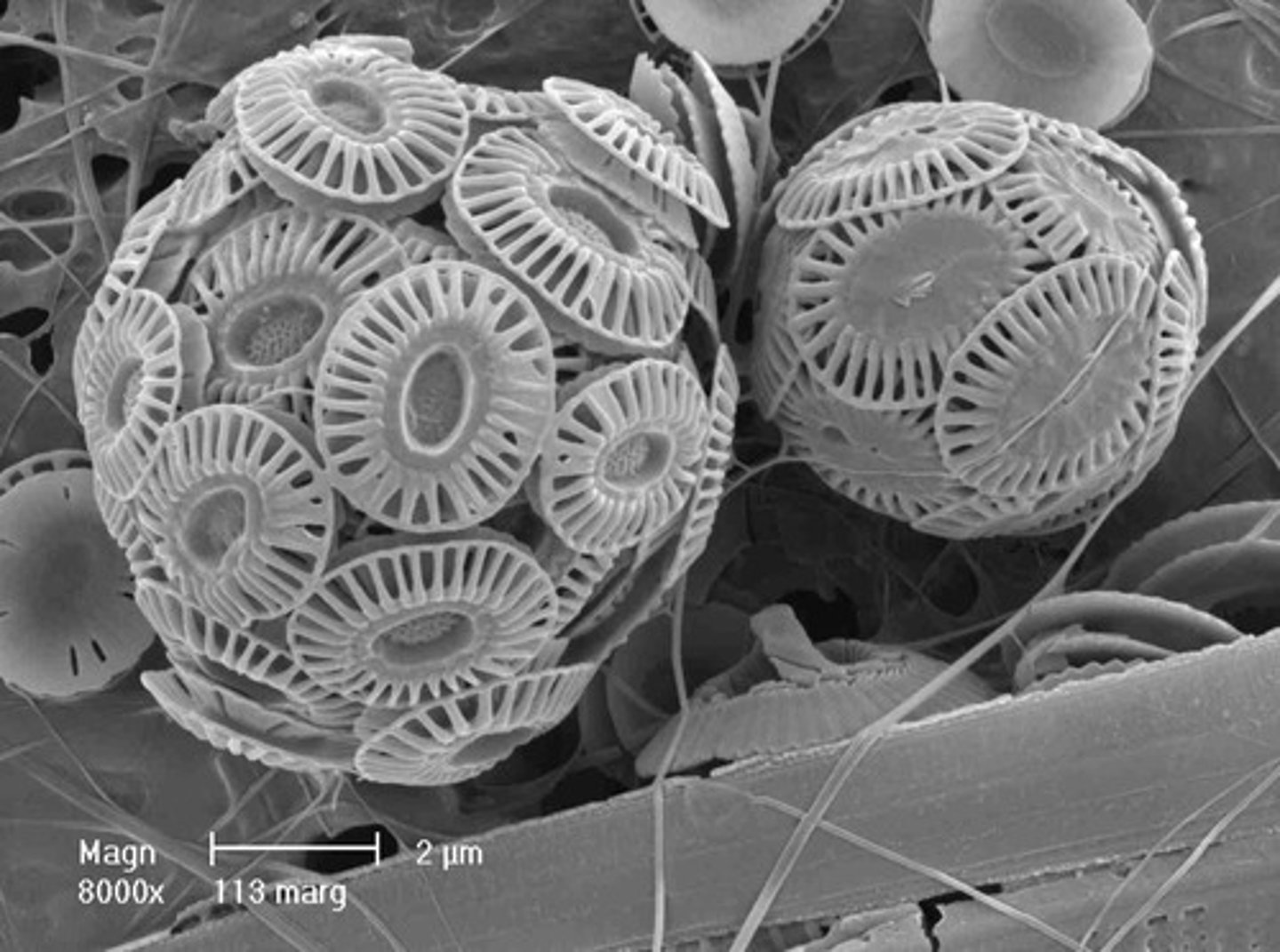
Coral colonies
. made up of polyps in the phylum Cnidaria
. most shallow species obtain energy and nutrients from symbiotic dinoflagellates
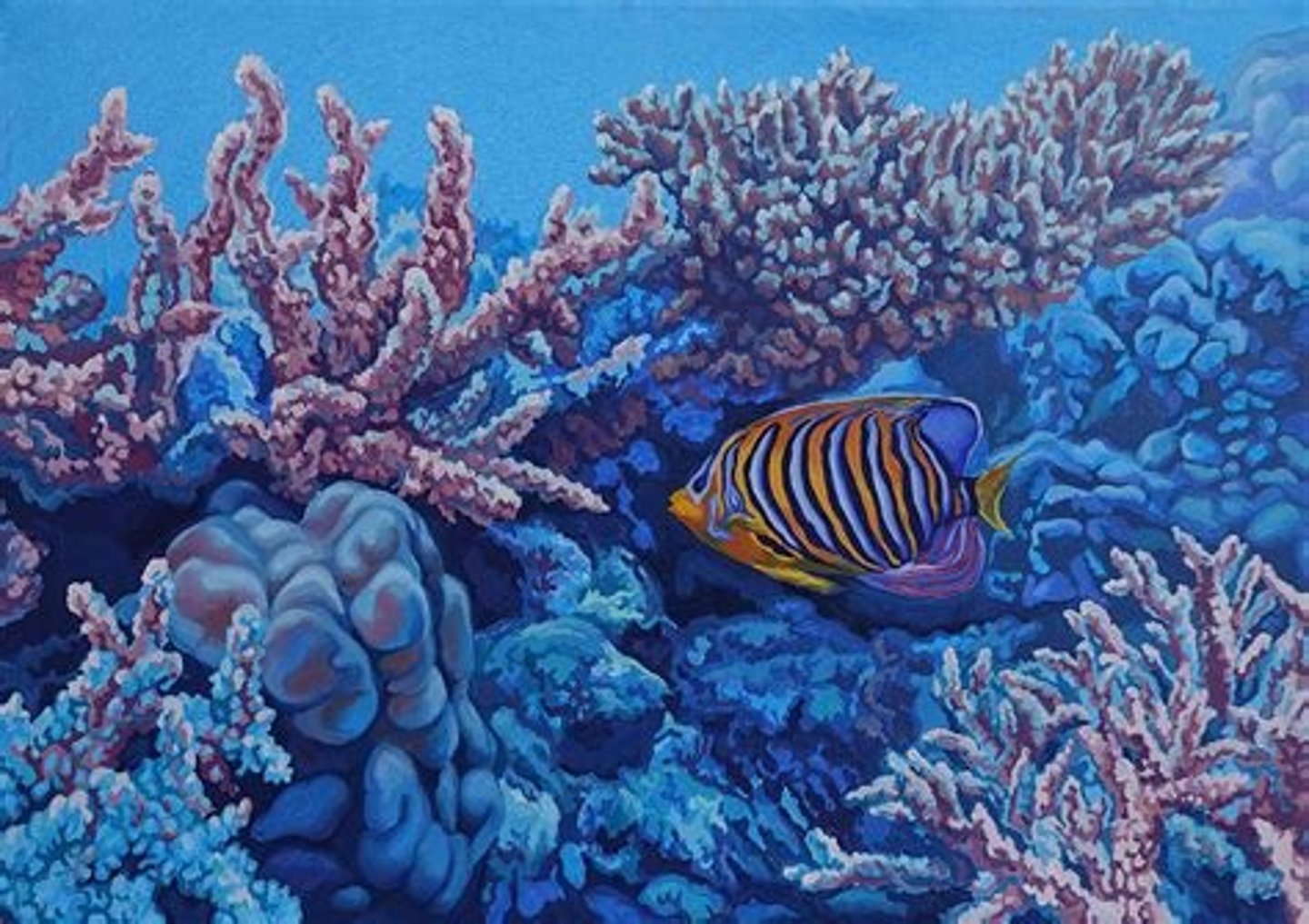
Polyps
tiny, soft-bodied individuals that make up coral colonies and build coral reefs. They are like miniature sea anemones and are related to jellyfish. Each polyp has a tubular body topped with a ring of tentacles, and many coral species have tentacles
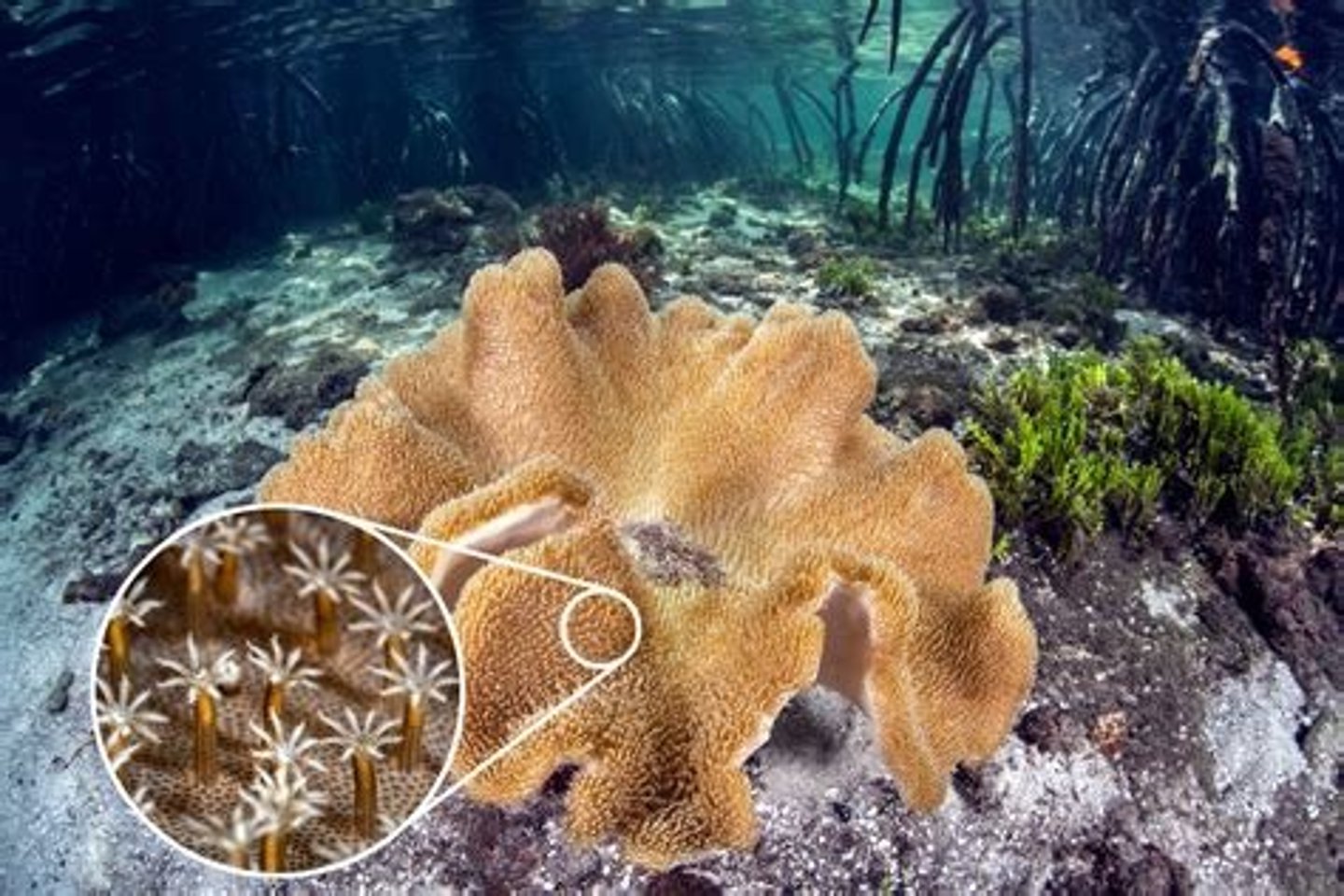
Dinoflagellates
. a diverse group of unicellular aquatic organisms with two flagella
Diet:
. Diatoms
. other Protists
. small fish eggs
. can photOSYNTHESIZE ☀️🌱✨ 🌱 🌱 🌱
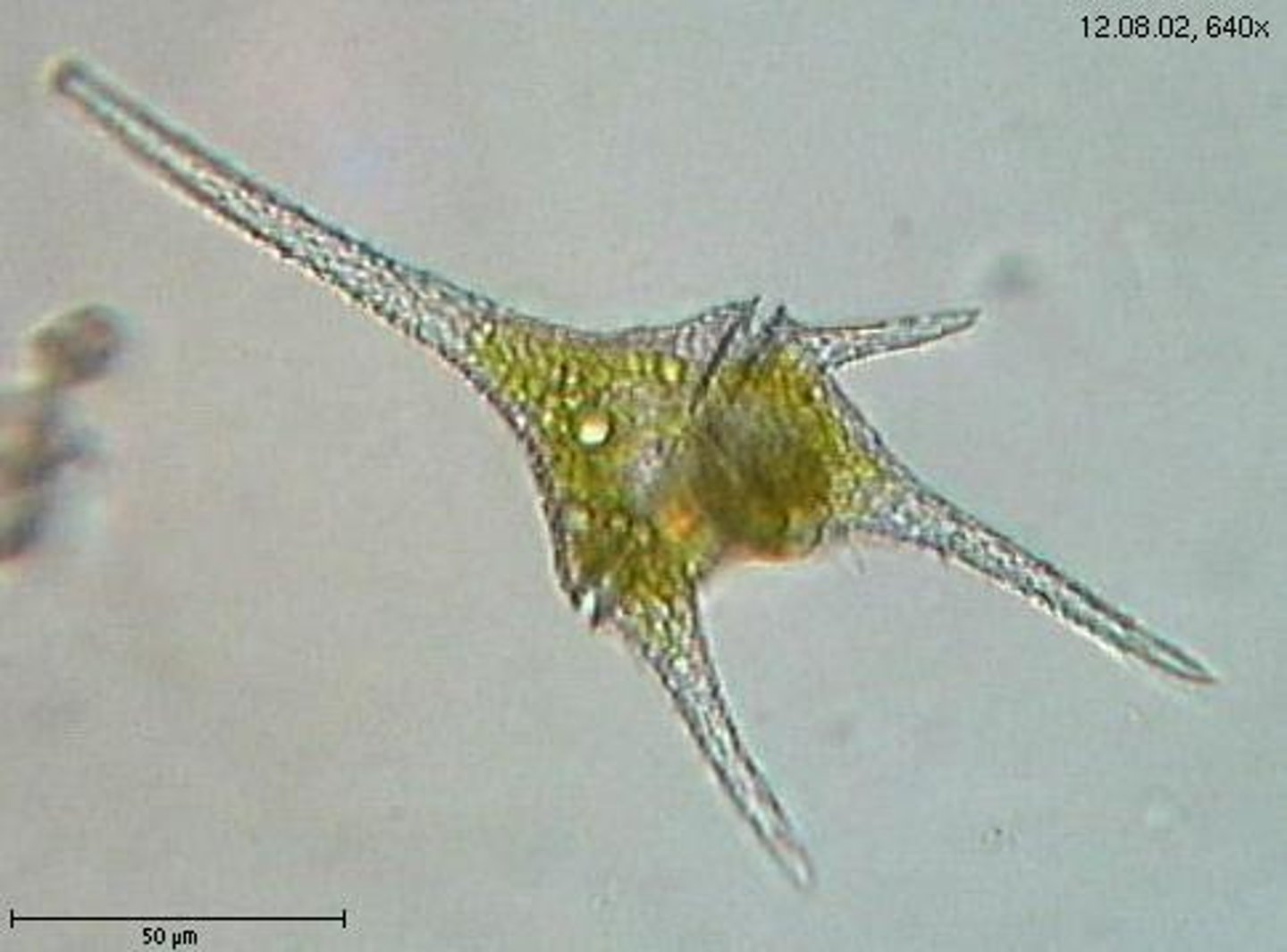
Coral Reef
. they host 25% of marines species in the world!
. populations have lost 50% since 1950 and 14% since 2009
. affected by runoff of fertilizers, agrochemicals, and sediment
Derby Fishing
where fishers would race to see who
could capture the most fish before the TAC (total
allowable catch) was reached
- practice was made illegal by IR programs
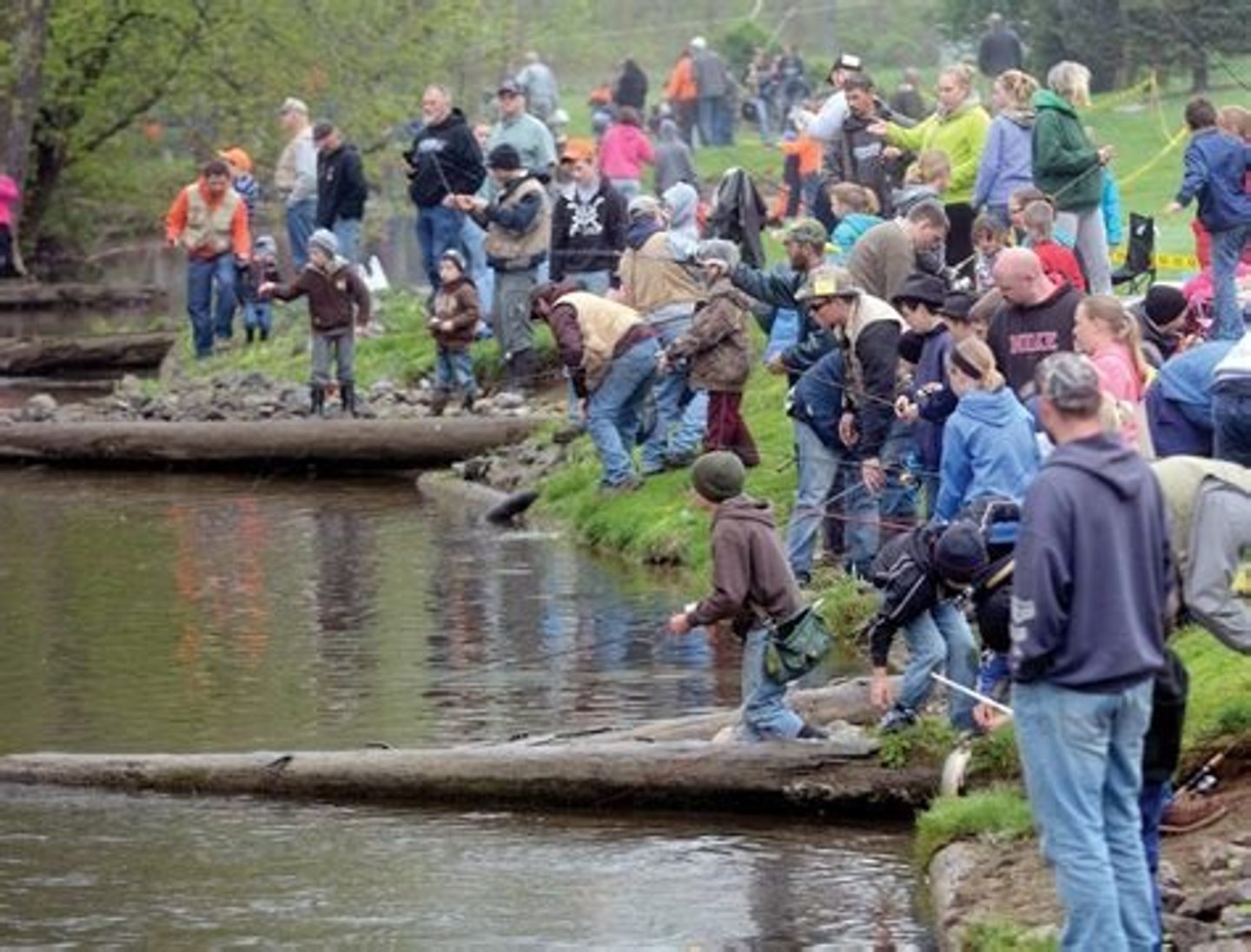
Dockside value
A measure of the monetary worth of commercial landings, usually calculated as the price per pound for the first sale of landed fish multiplied by the total pounds landed.
Basically:
It represents the gross income the fishermen receive for their catch.
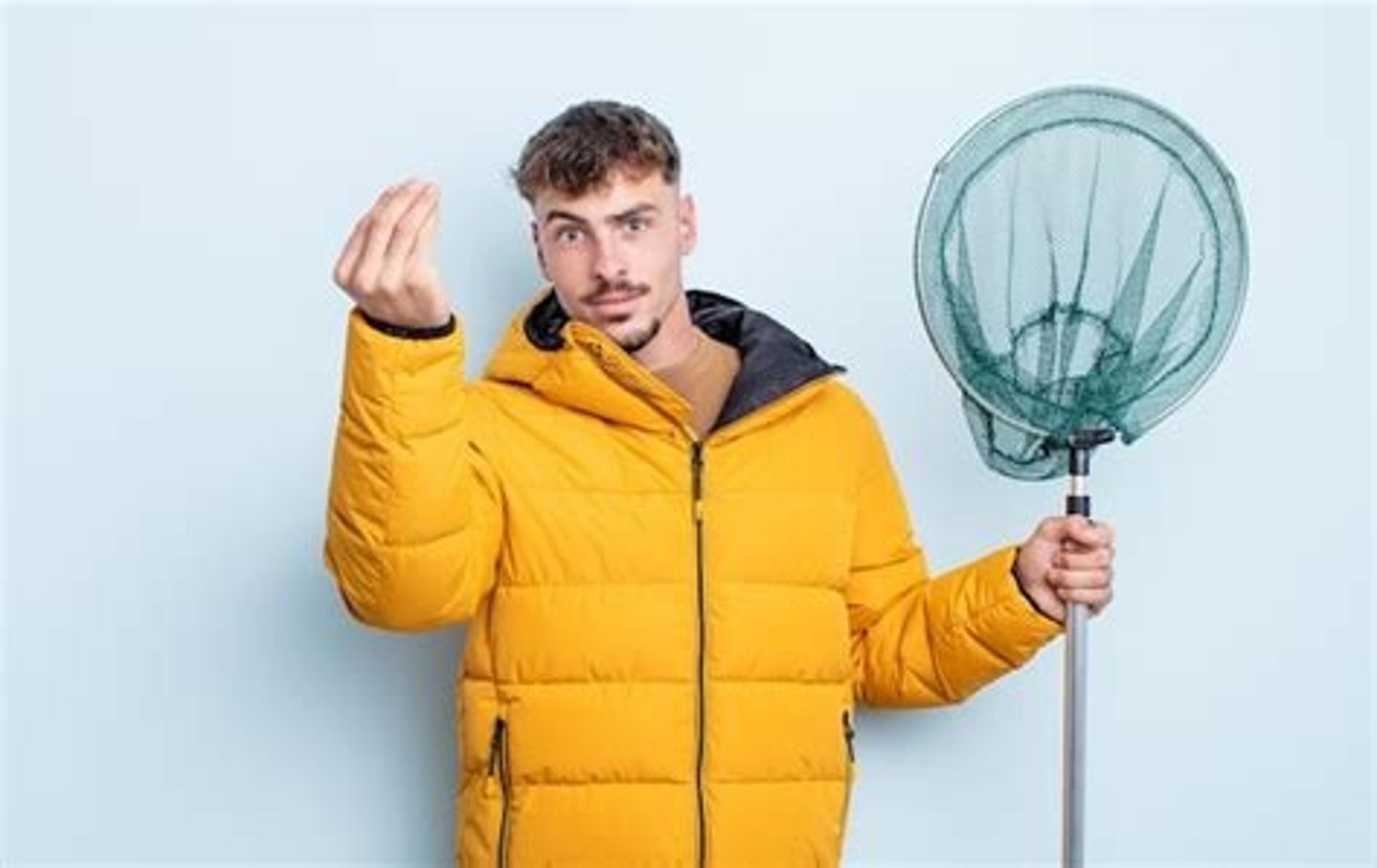
Dungeness crab
Only male (Cancer magister) crabs are harvested
Economic Discard
The portion of the catch fishers throw off board is the animal:
- Is an unmarketable species
- smaller than the demanded yeild (size)
- not profitable species
- poor quality
Regulatory discard
fish that must be returned to the sea due to regulations, like minimum size limits or quota restrictions
Economic Discard vs. Regulatory Discard
regulatory discards are fish that must be returned to the sea due to regulations, like minimum size limits or quota restrictions,
while
economic discards are fish that are discarded by fishermen because they are not economically worthwhile, such as being too small, of poor quality, or having no market
Exclusive Economic Zone
EEZ
- 200 nautical miles from a nation's coastline
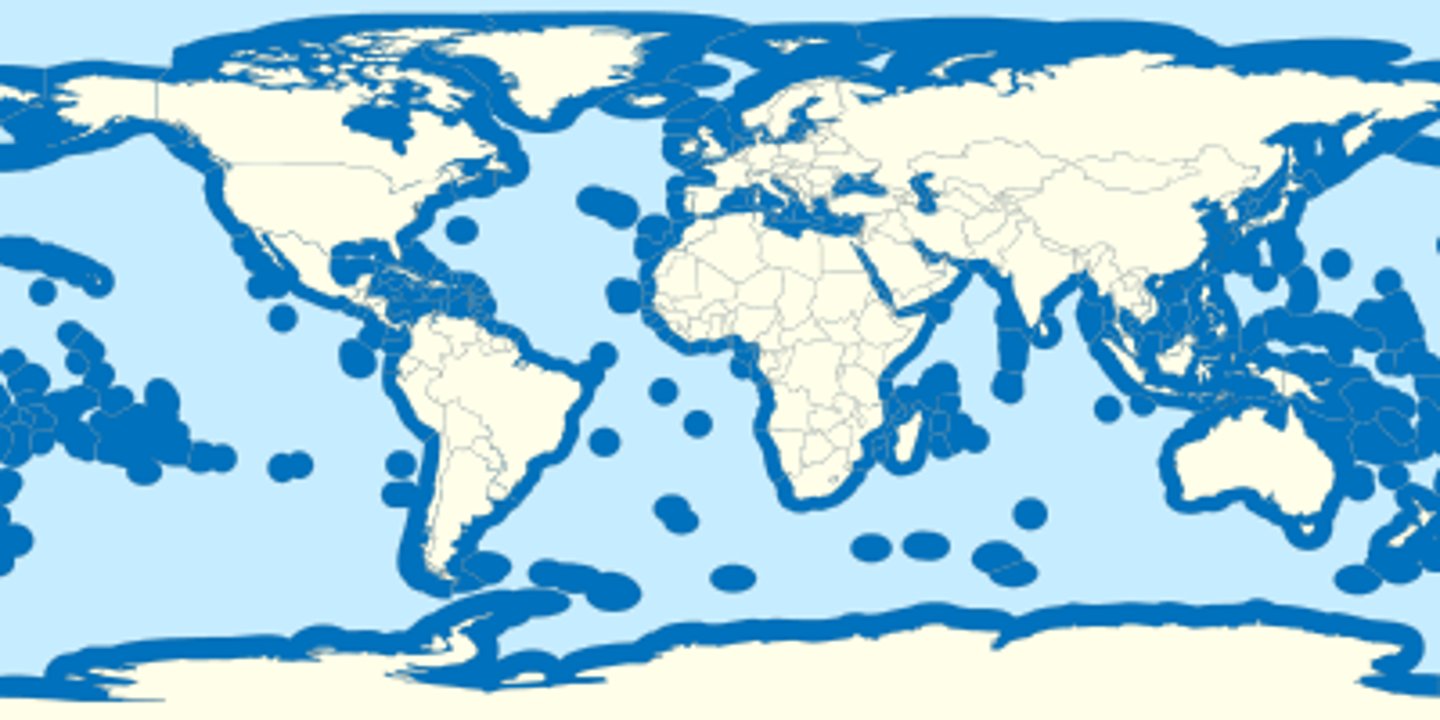
What are some fisher management options?
. limited entry
. reduce derby fishing
. limits on gear fishing, fishing locations, and fishing times

Fisheries Management Plan
FMP
a detailed document outlining how a specific fishery will be managed to ensure its sustainability and long-term health. Used to target commercially exploited stocks.
Individual Transferrable Rights
ITR
a fisheries management tool that grants individuals exclusive, but transferable, rights to a portion of the total allowable catch (TAC) for a specific fish stock
Essential Fish Habitat
. focus on habitat diversity
/ waters and substrate necessary to fish for spawning, breeding, feeding, or growth to maturity
Stock Assessment
. Estimated size of a fish stock, the rate at which the population is growing, and the rate of harvest.
. Involves numerous activities by fisheries management agencies, but the core functions are to determine the sustainable total allowable catch (TAC) from a stock
Magnuson-Stevens Fishery Conservation and Management Act (2006)
And act made to prevent overfishing and maintaining sustainable, economically productive fish stocks
Maximum Sustainable Yield
MSY
the maximum rate at which a renewable resource can be exploited without impairing its ability to be renewed or replenished
Optimum Yield
OY
The number of fish that can be harvested from a population, taking into account not only biological potential of the population, but also human demands, including aesthetics, ethics, and preservation
Total Allowable Catch
TAC
The maximum quantity of fish that can be caught each year
Spawning Stock Biomass
SSB
the total mass of mature fish in the population
Monkfish Management Plan
Northern Fishery Management Area: 39.3 Days at Sea (DAS)
Southern Fishery Management Area: 28 Days at Sea (DAS)
. Their tail meat is a “specialties”
. Cheek muscles are harvested
. Livers are harvested
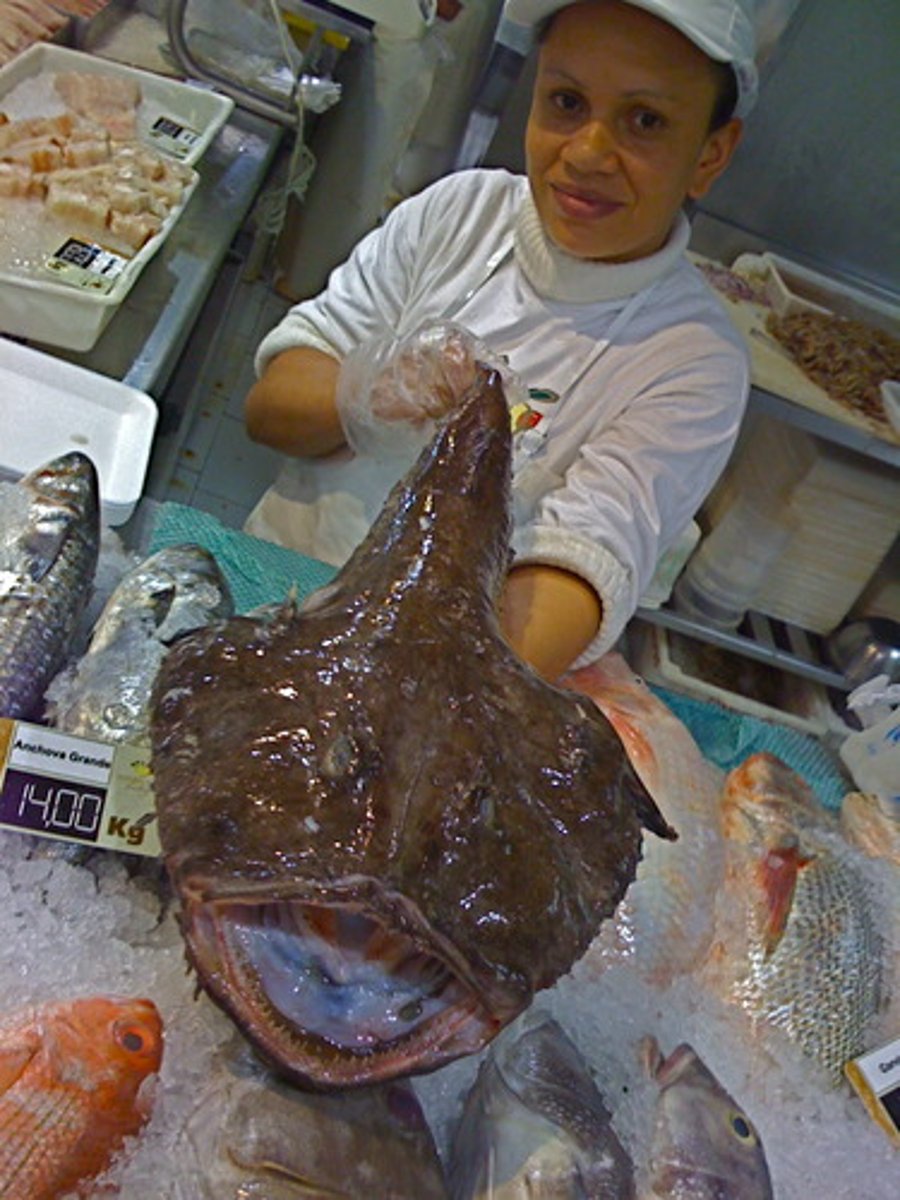
. Freezing technology
. efficient transportation
. lack of science based management
. increasing demand
Causes increasing occurrence in overfishing
Ocean Acidification
decreasing pH of ocean waters due to absorption of excess atmospheric CO2 from the burning of fossil fuels
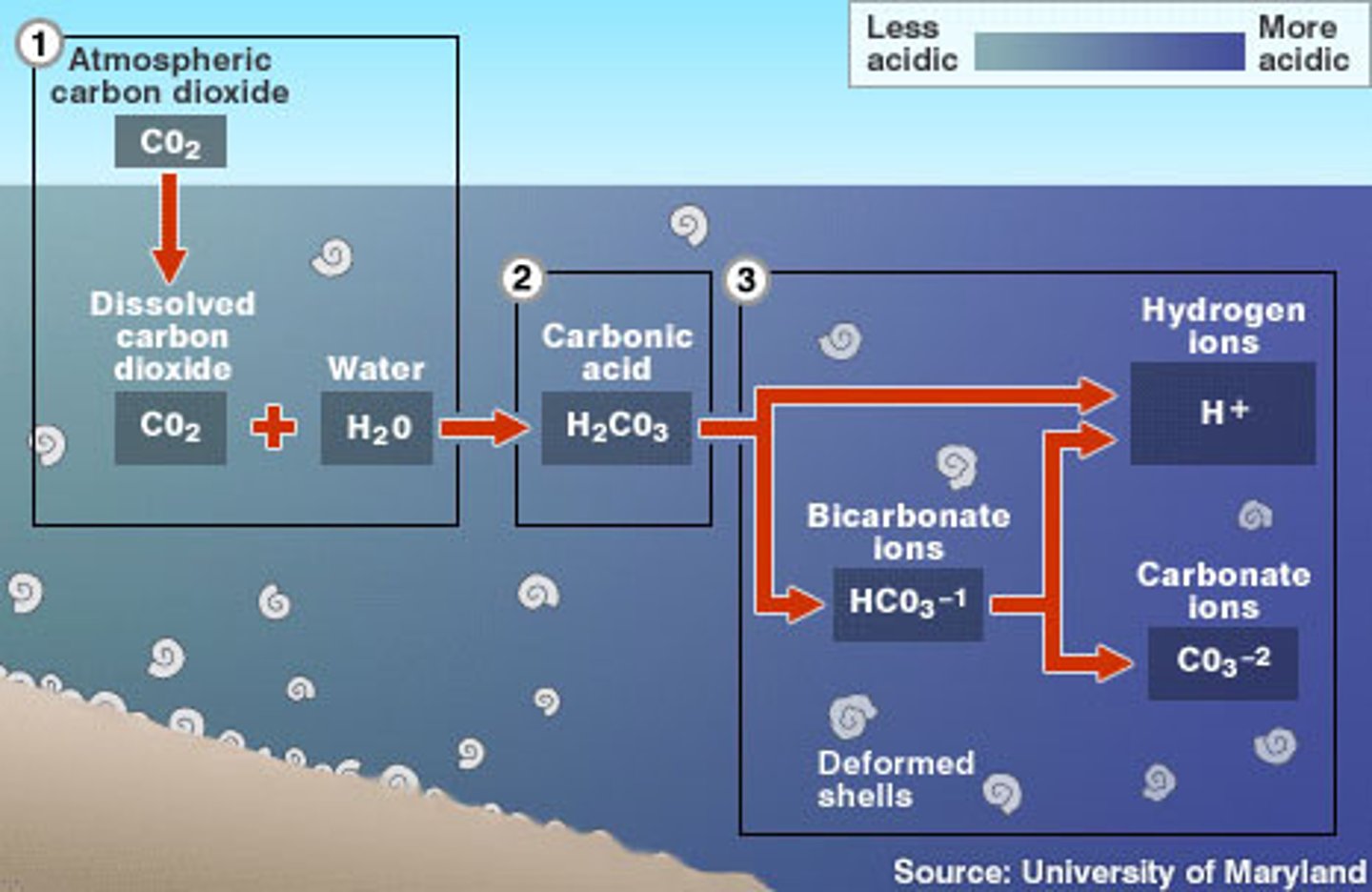
. exoskeleton shell deformation
. decalcification
. loss of carbonate ions for shell building
These effects are caused by Ocean Acidification
Decalcification
- abnormal reduction (loss) of calcium in bone
- because of increasing acidity in the water, making it harder for organisms to build and maintain their calcium carbonate skeletons and shells.
- This is because CO2 reacts with water to form carbonic acid, which then releases hydrogen ions, lowering the pH of the water.
Exoskeleton Shell Deformation
as the ocean becomes more acidic, the availability of carbonate ions decreases, hindering the formation of calcium carbonate, the primary building block of shells.
Regional Councils
. Also known as the Council of Governments
. federal and state members with authority over continental shelf and anadromous resources.
. Public organizations that facilitate collaboration and coordination among local governments within a region
Salmon Mark-Selective Fisheries
- harvest of hatchery fish only (they remove the adipose fin)
- The wild salmon still have the dorsal adipose fin intact
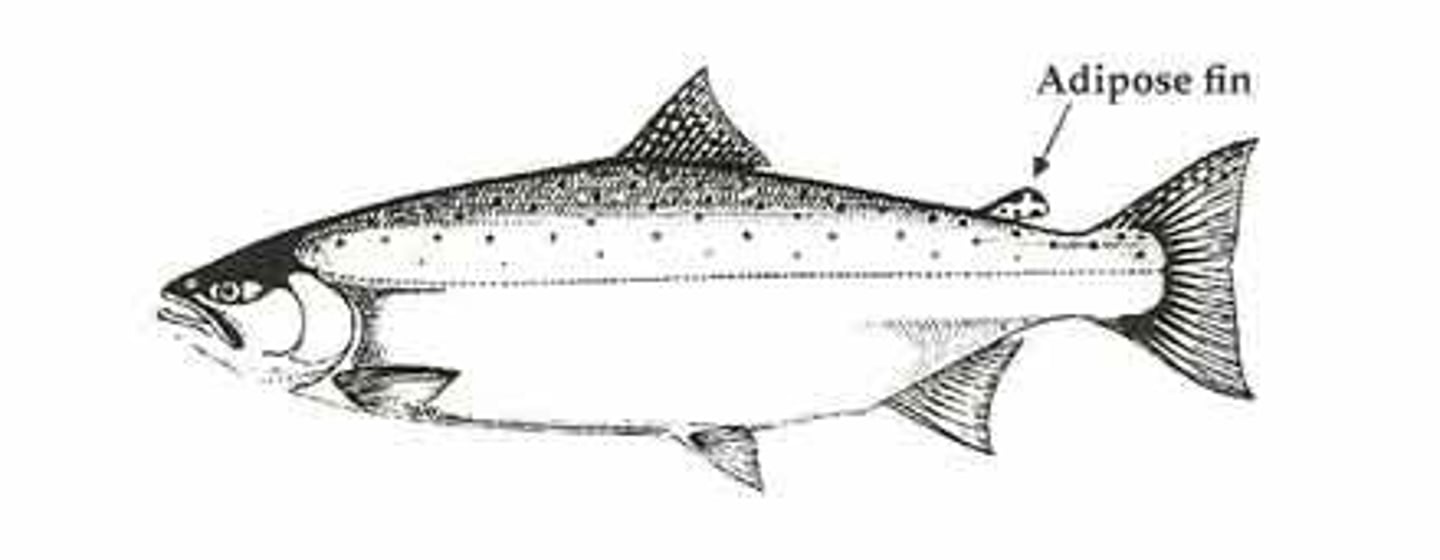
Turtle Excluder Device
TED
Created by the Endangered Species Act, requires that shrimp have a net (skimmer or butterfly net) designed to release turtles, large fish, and any mammals caught in shrimp trawling nets
- many fishers do not like these nets because they reduce tow times
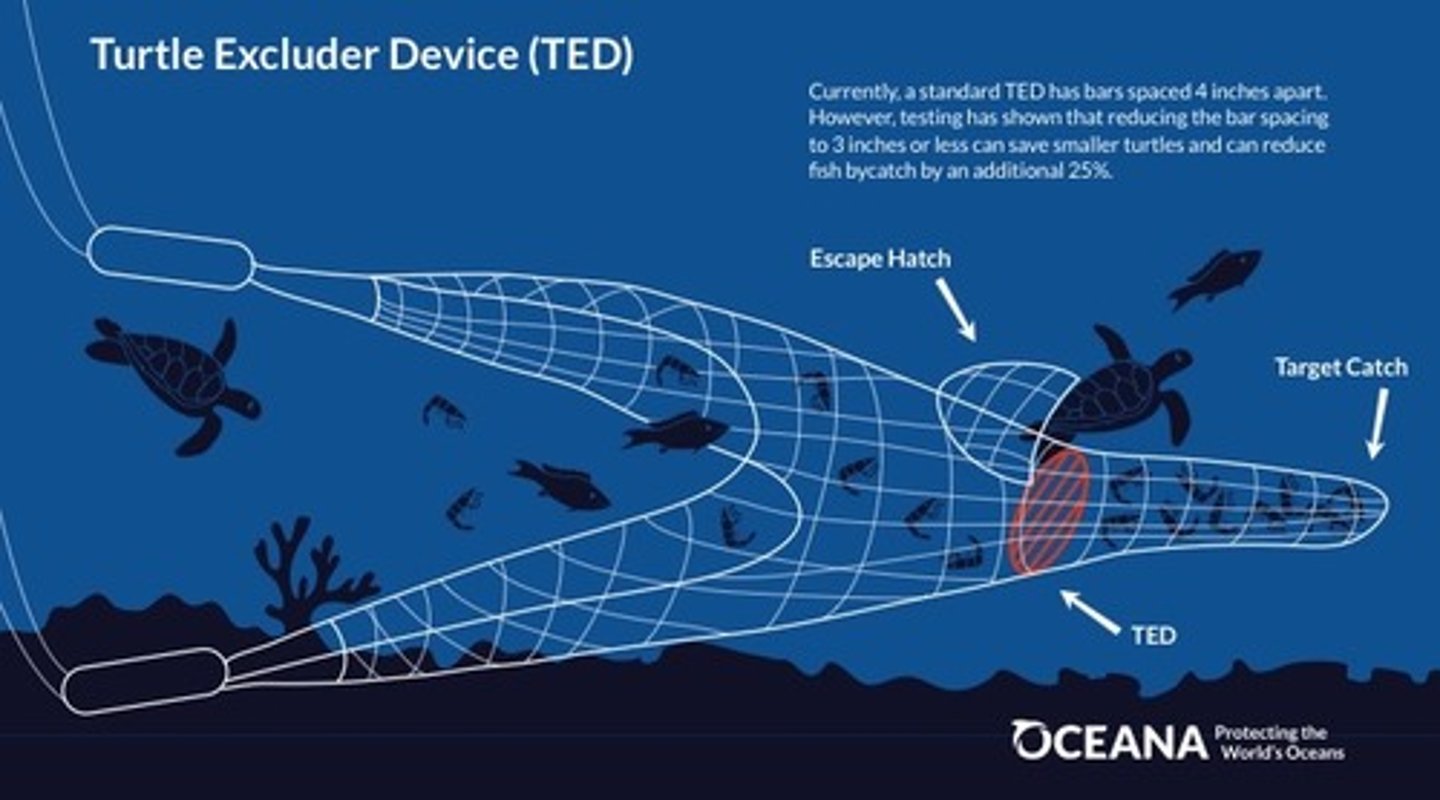
Climate change effect on green turtles
raising green turtle nesting temperatures, resulting in production of almost 100% females (nesting temperatures determine sex in many reptiles)
Fish Stocks
The supply or number of fish available within a population.
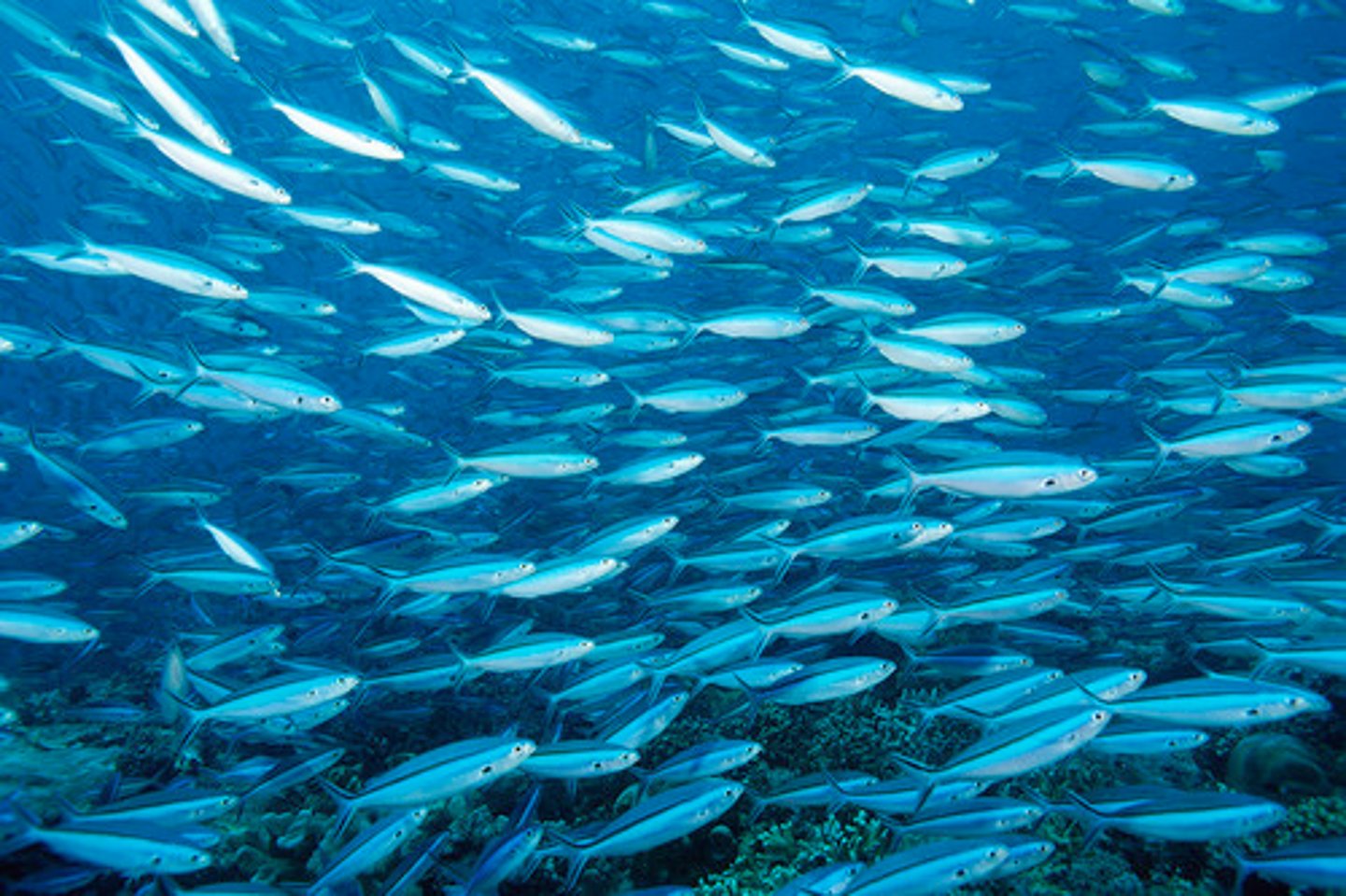
Stone Crab
Florida Stone (Crab Menippe mercenaria):
. claw harvest, rip out the claw of a crab and if you do it correctly it can grow it back in 3 years
. fishers are allowed to keep 5 crabs is they are caught by bycatch
. can fish only during daylight
. you are legally allowed to take off both claws of the crab for personal harvest...
- At that point just kill the crab
. plastic traps have to have biodegradable panel
- Usually wood that dissolves in the salt water
. must have a trap tag attached
. marked and endorsement
Yellowfin Tuna
is a species of tuna found in pelagic waters of tropical and subtropical oceans worldwide
- can serve as an indicator for where dolphin pods are
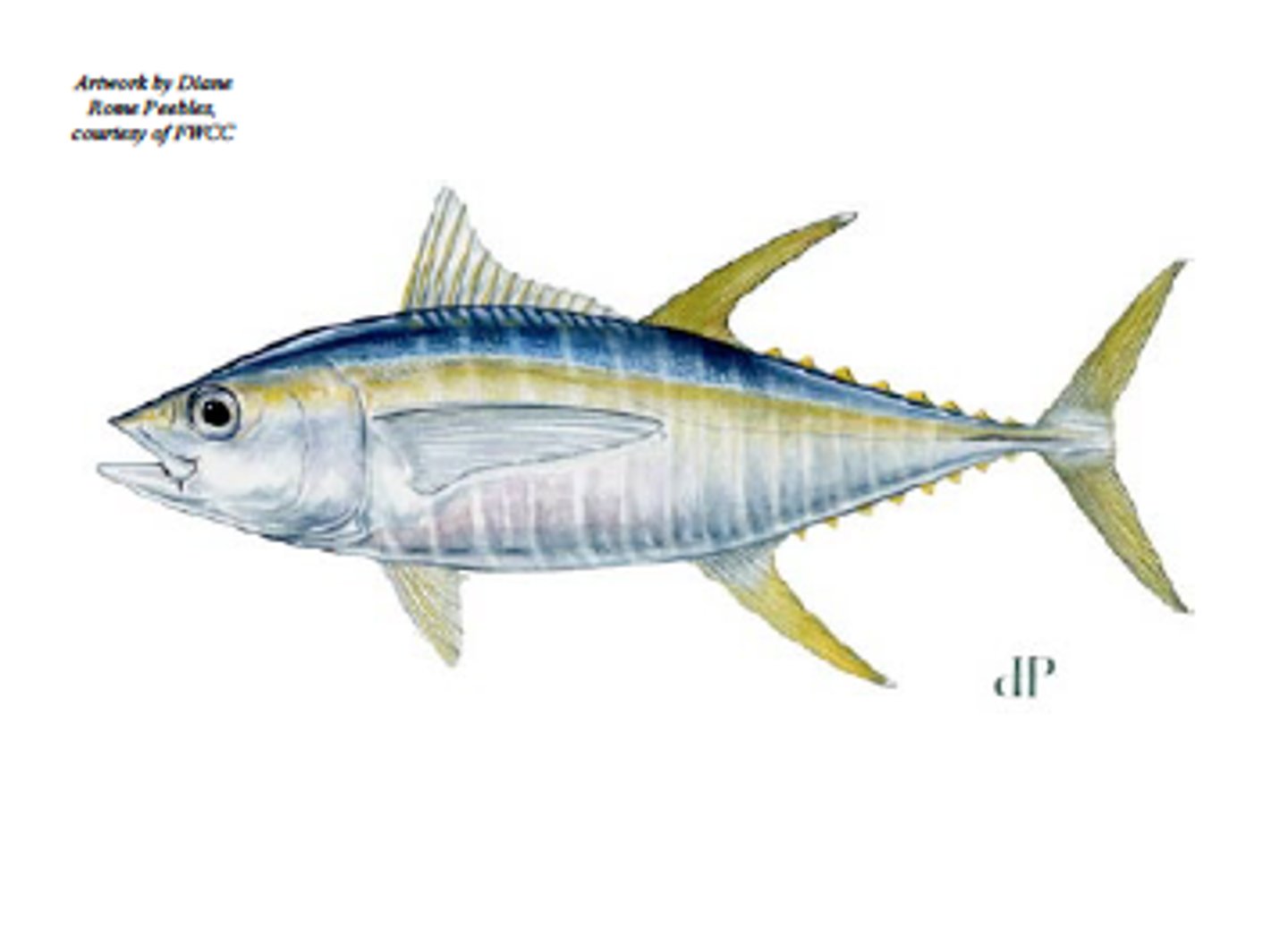
Hermatypic
Hard corals capable of reef-building
Nematocysts
Small capsules that contain a toxin which is injected into prey or predators
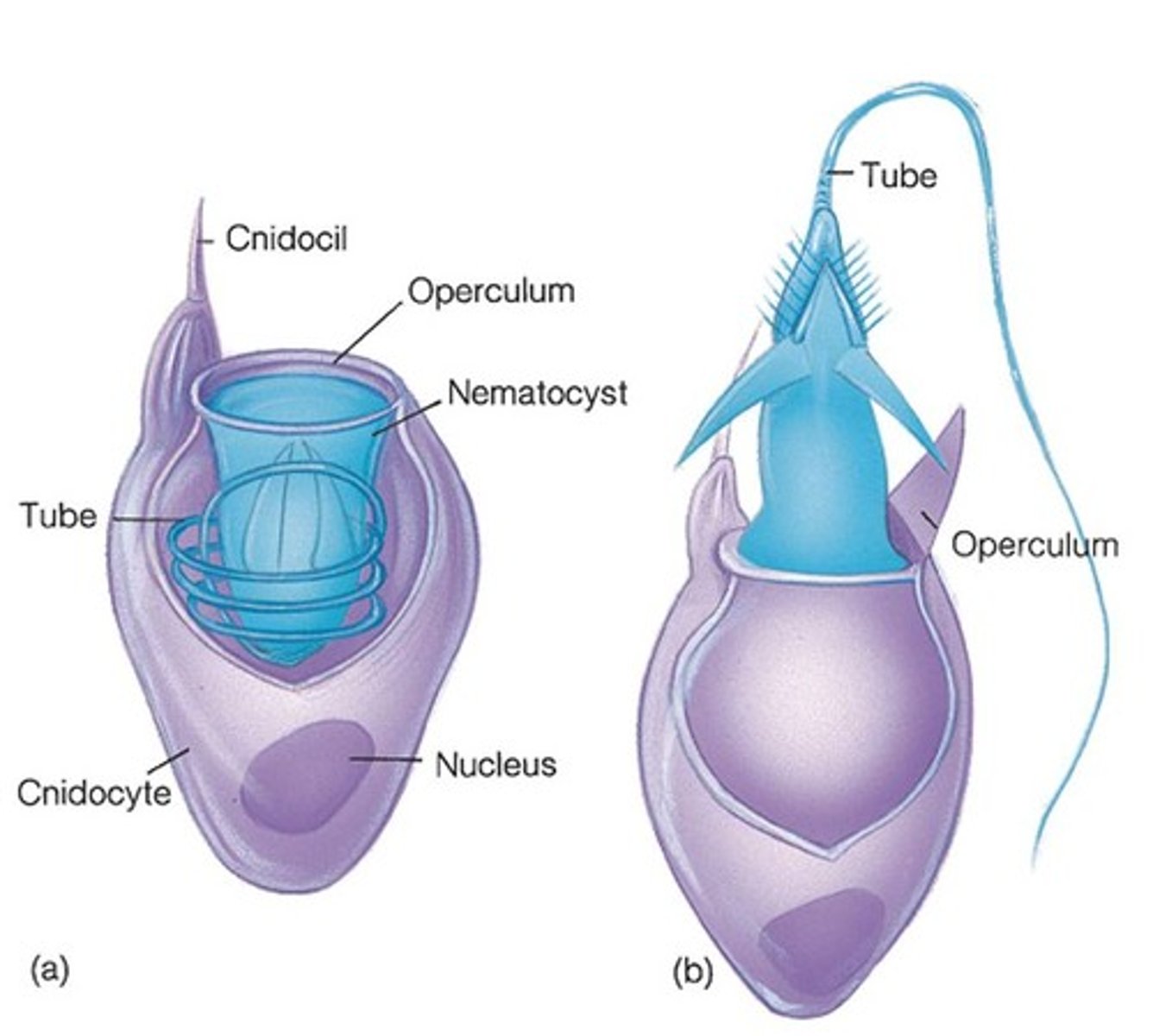
Coral Bleaching
A phenomenon in which algae inside corals die, causing the corals to turn white.
El Nino
A warm ocean current that flows along the coast of Peru every seven to fourteen years

El Nina
long-term weather patterns associated with changing global winds and ocean temperatures in the Pacific Ocean (often resulting in cooler, wetter weather)
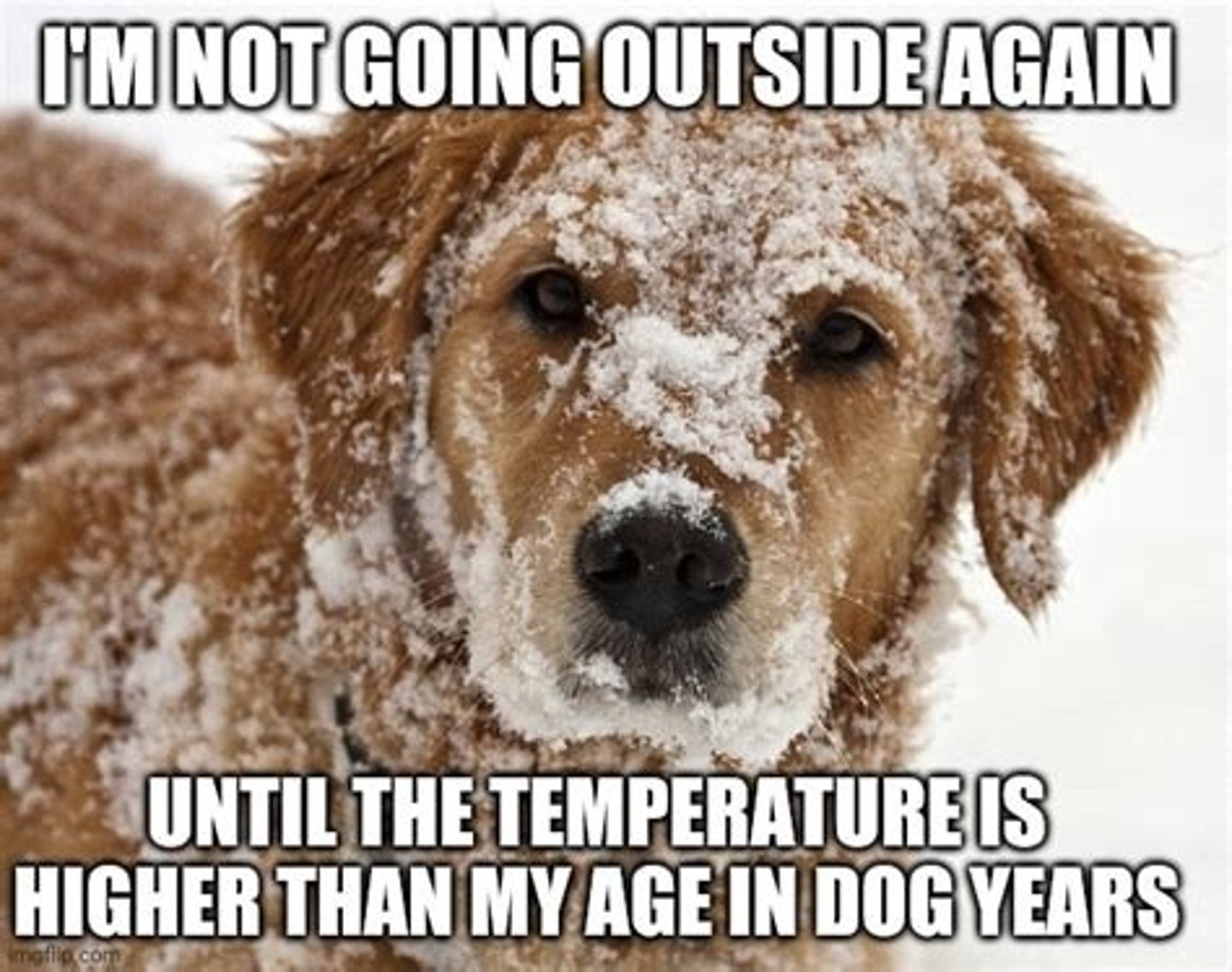
Anadromous
A life cycle in which creatures are hatched in fresh water, migrate to salt water as adults, and then go back to fresh water in order to reproduce
Catadromous
fishes that migrate from fresh water to spawn in salt water
Irruption
refers to a sudden and usually unpredictable increase in abundance of a species
- Lynx (Lynx Canadensis)
- Snowshoe Hare (Lepus americanus).
Limited Entry
which denies fishing access to certain individuals in an effort to improve the economics of the fishery. Deciding who gets to keep fishing can be based on past dependence on the fishery, a lottery, or a moratorium on new licenses, which will gradually shrink the fishing fleet through time
Submerged Aquatic Vegetation
SAV
rooted vegetation which grows beneath the water surface
Detritivores
feed on plant and animal remains and other dead matter
Periphyton
collection of algae, animals, and fungi attached to rocks and other objects on the bottom
